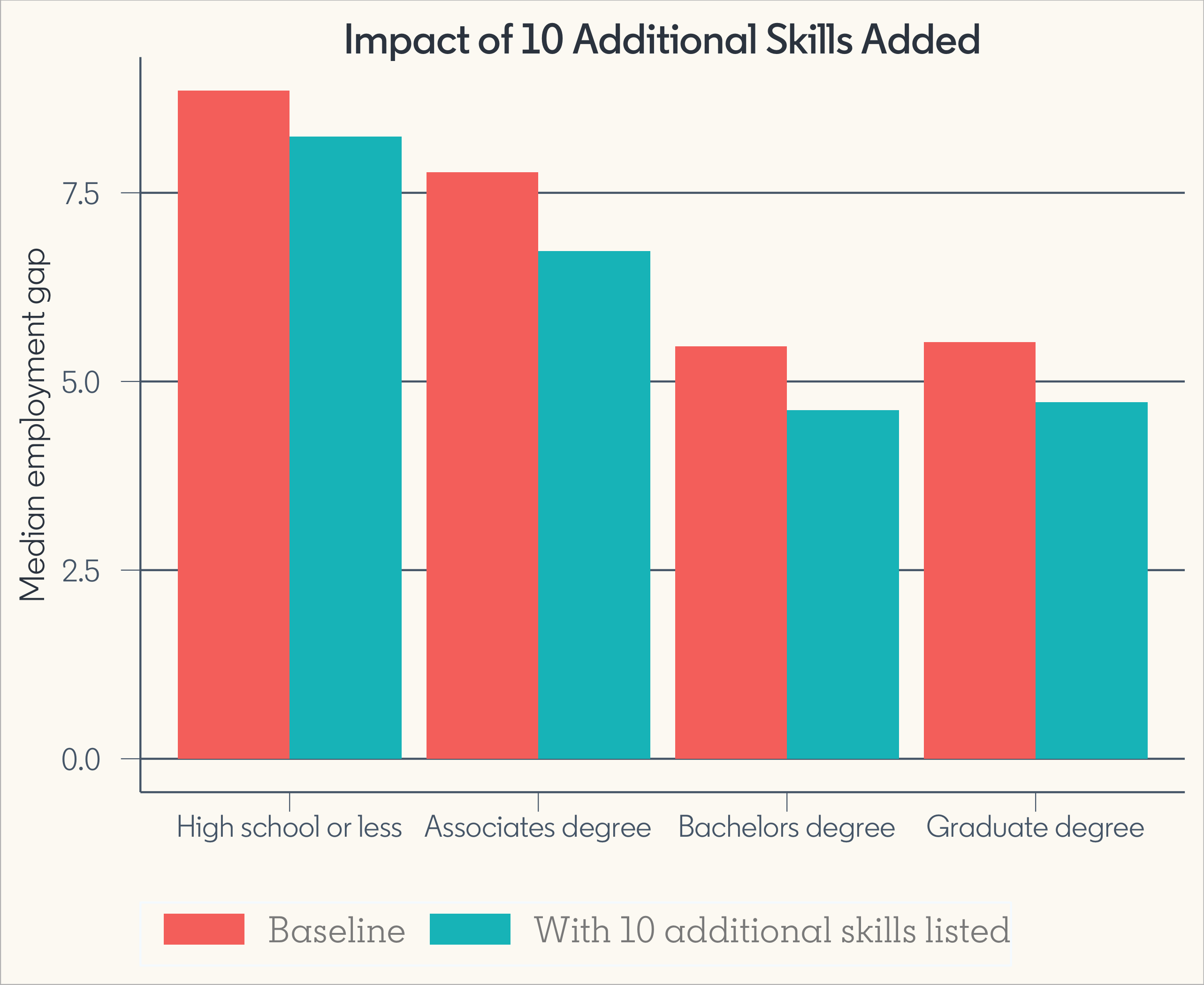
Adding or receiving endorsements for profile skills may shorten employment gaps
In a new working paper, my colleagues Paul Ko and Nikhil Gahlawat and I examine the extent to which self-added and endorsed skills can serve as a micro-signal to employers to shorten employment gaps. In this preliminary work, we found that skills are important tools for decreasing employment gaps regardless of educational attainment, a member adding ten or more skills on their profile decreases the median employment gap by about one month.
Employers choose candidates based on several potential signals of fitness for the job—years of experience, occupational credentials, and often education. Additionally, whether it is welding or web design, skills have become increasingly important in finding a job. Over 40 percent of hirers on LinkedIn use skills explicitly in their searches for candidates, up over 30 percent from a year prior. In each case, the primary goal of these filters is to narrow down the pool of candidates to applicants the employer feels have the required skills for the job. And, as shown in our new findings, these added skills also increase the speed at which individuals not working find new employment. This is equally true across all education groups.

LinkedIn’s platform not only allows members to add skills, but it also allows a member’s network to endorse you for those skills. These endorsements are also effective in reducing the time it takes to find a new job. This is particularly true for sub-baccalaureate workers, where endorsements can provide a clearer signal to employers about a worker’s competencies: members with high school degrees or less have an estimated 1.15 reduced employment gap with ten additional skills. On the other hand, members with a graduate degree show a decrease of .66 months for ten skills.
In this time of increasing employment uncertainty and recession worries, additional signals to employers about a candidate's skills are more important than ever. In our analysis, we also found evidence that self-added skills have a larger impact on shortening employment gaps in markets and months where there is a lower hiring rate, suggesting that as firms have fewer job openings and more workers competing for fewer jobs, skills on profiles provide a better advantage in standing out.
Members with no education information on their profile but with added skills serve as a stronger signal of competencies compared to other members who also have no listed education with no skills on their profile.
Overall, added skills not only differentiate a worker from those who have fewer or no listed skills, but we suspect better matches workers to jobs, creating a net positive for the economy and for those workers.
This article was co-authored by Paul Ko, Senior Staff Data Science at LinkedIn and Nikhil Gahlawat, Staff Data Scientist at LinkedIn.
Any opinions expressed in working papers are those of the author(s) and not those of LinkedIn. Working papers represent work in progress and are being distributed to encourage discussion and feedback. Citation should account for the provisional character.
